Advice for boosting thyroid function or reversing thyroid disease tends to focus on diet and supplement factors only.
However, the thyroid is incredibly sensitive to all external factors as well as diet. Making a home thyroid-friendly can help to reduce stressors that lead to thyroid dysfunction. Why is the thyroid so sensitive? All endocrine organs rely on messengers to communicate when and how much hormone to produce. These messengers respond to stress – including emotional, mental, physical, or environmental stress – and can over – or underproduce hormones as a result.
The thyroid produces two hormones: thyroxine (T4) and triiodothyronine (T3). TSH, or thyroid-stimulating hormone, is produced by the pituitary gland in the brain to instruct the thyroid when more hormones need to be made. When TSH signals are sent, the thyroid makes T4 (the inactive form of thyroid hormone). T3, the active thyroid hormone, is then produced when cells in the body activate it from the inactive form.
Are you struggling with a Thyroid condition? We’ve created a FREE guide that shows you how you can heal your thyroid.
Click here to get your FREE copy of our Thyroid Guide!
Thyroid dysfunction is a common problem, and 7 out of 8 people who suffer from it are women. The thyroid can either produce too little or too much hormone, resulting in unpleasant symptoms on both ends of the spectrum. When the immune system becomes involved, the thyroid disorder is an autoimmune disease that responds to the immune production of antibodies aimed at targeting the thyroid.
The thyroid regulates metabolism and energy levels, so when thyroid hormone is low, energy levels are low and weight gain often occurs. When thyroid levels are excessively high, weight loss may occur, along with heart palpitations and bouts of anxiety.
Your thyroid is also sensitive to toxins which are absorbed through dietary, lifestyle, and environmental sources. These toxins can overwhelm the liver and other detox organs, and remain within the body, exerting an influence over hormone production. Toxins that have this effect within the body are known as endocrine disruptors, and there are several that research has shown interfere with thyroid hormones (1):
- Phthalates
- BPA (bisphenol A)
- Flame retardants
- Perfluorinated chemicals
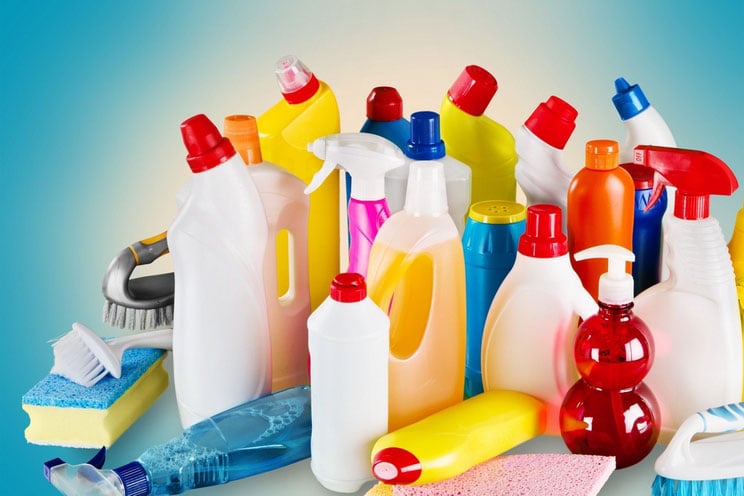
Phthalates are often found in anything with a scent or fragrance, but very often don’t even have to be disclosed on product labels. BPA is notoriously found in plastic items. Recent awareness has led to a whole slew of products marketed as “BPA-free,” but what isn’t disclosed on labels or as common knowledge is that most of those products contain BPS (bisphenol S), and when BPS enters the body it behaves in much the same way as BPA. (2) Flame retardants are often found in furniture and carpets, as well as many children’s products like car seats, mattresses, and even pajamas, and their health impact goes way beyond the thyroid – even to cognitive performance and abilities! (3) Perfluorinated chemicals can be found anywhere from the public water supply to carpets to food items and even breast milk. (4)
As you can see, toxins seem to be everywhere around us, but in most cases, there are toxin-free alternatives. For the sake of thyroid health, we need to go beyond our diets to improve wellness and hormone production from the outside and the inside.
Bottom line: The thyroid is temperamental and even if food sources are clean, lifestyle factors need to be addressed.
Start with the Kitchen
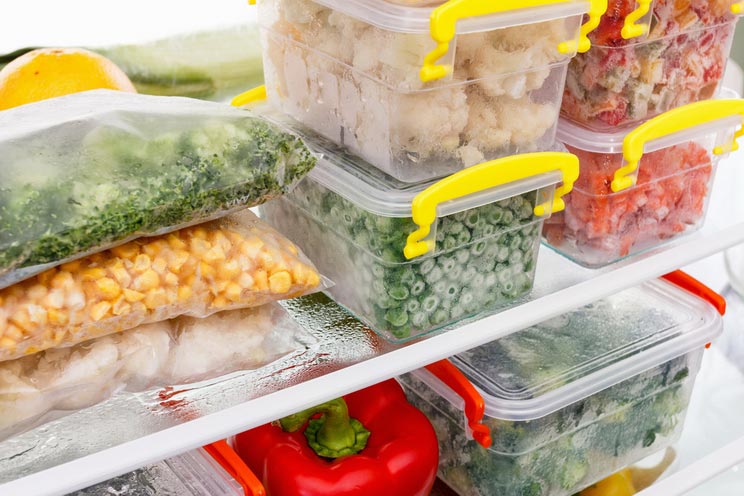
Cleaning up the home starts with the kitchen. Paleo is thyroid-friendly because it reduces food toxin sources. But let’s take it beyond that. Within our kitchens there can be numerous sources of toxins right under our noses. Plastic mixing bowls or food storage dishes. Nonstick skillets. Single-brew coffee makers.
When plastics get heated, they release toxins. (5) When nonstick pans are heated over high heat, they can release chemicals that can cause flu-like symptoms in some cases. (6) The dangers of single-brew coffee makers have made the rounds, pointing out the high heat going through cheap plastic cups that contain the coffee or other beverages. [tweet_quote] Toss your K-Cup: Single-brew coffee makers release toxins![/tweet_quote]
There are safe alternatives to each of these things. However, I understand that most people can’t throw out all of their plasticware and nonstick pans. The factors to keep in mind are these:
- Don’t use the “heated dry” setting on your dishwasher if you put plastic or nonstick pans in there.
- Don’t preheat nonstick pans on medium-high or high heat.
- Don’t microwave plastic containers, ever.
- When replacing plastic items, opt for glass or stainless steel.
- When replacing nonstick pans, opt for stainless steel or cast iron.
- Choose a coffee brewing system that avoids use of plastic, such as a single-brew, pour-over option in stainless steel.
Bottom line: Plastics and nonstick pans should be avoided and replaced when possible, and should not be exposed to high heat or microwaves.
How Lifestyle Toxins Affect Your Thyroid
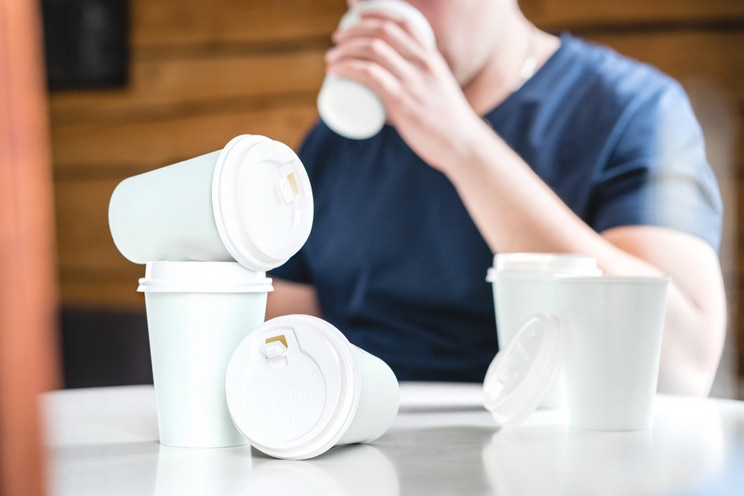
The thyroid is sensitive to toxins from lifestyle sources which primarily include stressors such as lack of sleep, lack of exercise, over-exercise, insufficient hydration, excessive caffeine intake, and alcohol intake.
But a major factor that is often ignored is the lifestyle products that we willingly smear onto our bodies. Make-up, lotions, and other cosmetics are often the most toxic things that we encounter. Even when clean, organic eating has become a regular part of our lives, many are unwilling to part with their favorite items, either because organic versions are more expensive or don’t work in the same way.
I’m here to tell you, though, as someone who did make the switch to a completely toxin-free lifestyle, that there are alternative products for every cosmetic convenience that you require. While it does involve that certain discomfort of trying new products, many organic, clean items offer trial or sample sizes, or can be demoed in health food stores. The Environmental Working Group (EWG) also ranks products according to their cleanliness, and can be a good starting point for sourcing new cosmetic products. [tweet_quote] Aim for about 8 hours of sleep to help keep your thyroid healthy.[/tweet_quote]
Prioritizing sleep often feels impossible for the overworked, the entrepreneur, the busy parent, the college student, or most other humans, really. But sleep is one of the most important factors that can improve total body wellness. While not everyone needs eight hours of sleep, it’s a good goal to aim for. If you are waking early for work, make it a point of setting an alarm to remind yourself to go to bed. Even if you don’t naturally fall asleep right away, the process of establishing a bedtime routine can improve sleep habits in and of itself.
Exercise, especially as concerns the thyroid, needs to walk a fine line. Not exercising at all can result in a low metabolism and a thyroid slump. Over-exercising can send the thyroid into an even greater slump, however, and can actually make it harder to lose weight. The best form of exercise for those who struggle with thyroid problems is something that is challenging but not completely exhausting. Running miles a day, for example, is probably not a restorative option. Short bursts of strength conditioning or cardio can be acceptable. But a true therapeutic exercise option for thyroid issues is yoga. (7)
Bottom line: Makeup and other beauty products can be huge sources of toxins. So try to replace them with cleaner, more natural versions when possible. When it comes to sleep, aim for at least 8 hours day and while it’s important to exercise regularly, don’t over-exercise, as this can send your thyroid into an ever greater slump.
How Environmental Factors Affect Your Thyroid
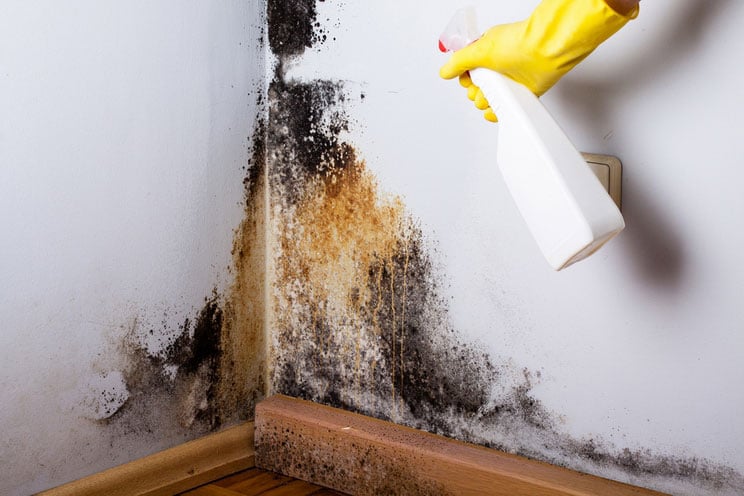
The thyroid is exceptionally sensitive, and any form of chemicals can contribute to dysfunction or imbalance. We’ve already discussed chemicals, plastics, and fragrances. Environmental toxins and pollutants, like mold, can also wreak havoc on the metabolism and thyroid hormone output. (8)
Mold can also have a negative impact on the immune system, respiratory system, digestive system, and nervous system. Basically, mold can be a destructive force that, once it has entered your immediate home environment, can lead to a cascade of problems that often won’t resolve until the source of contamination is dealt with.
Other environmental factors can also contribute to thyroid and other hormone problems. Pesticides, plant growth chemicals, and even bleach – which can all commonly be found in many typical homes – can contribute to thyroid dysfunction.
Bottom line: Environmental factors can strongly influence the thyroid and for the best results, should be removed and replaced with clean, toxin-free versions.
Conclusion
Making your home thyroid-friendly involves removing all sources of toxins, and it only starts with food. How in depth you go depends on your health condition and your level of determination to feel better and get “unsick.”
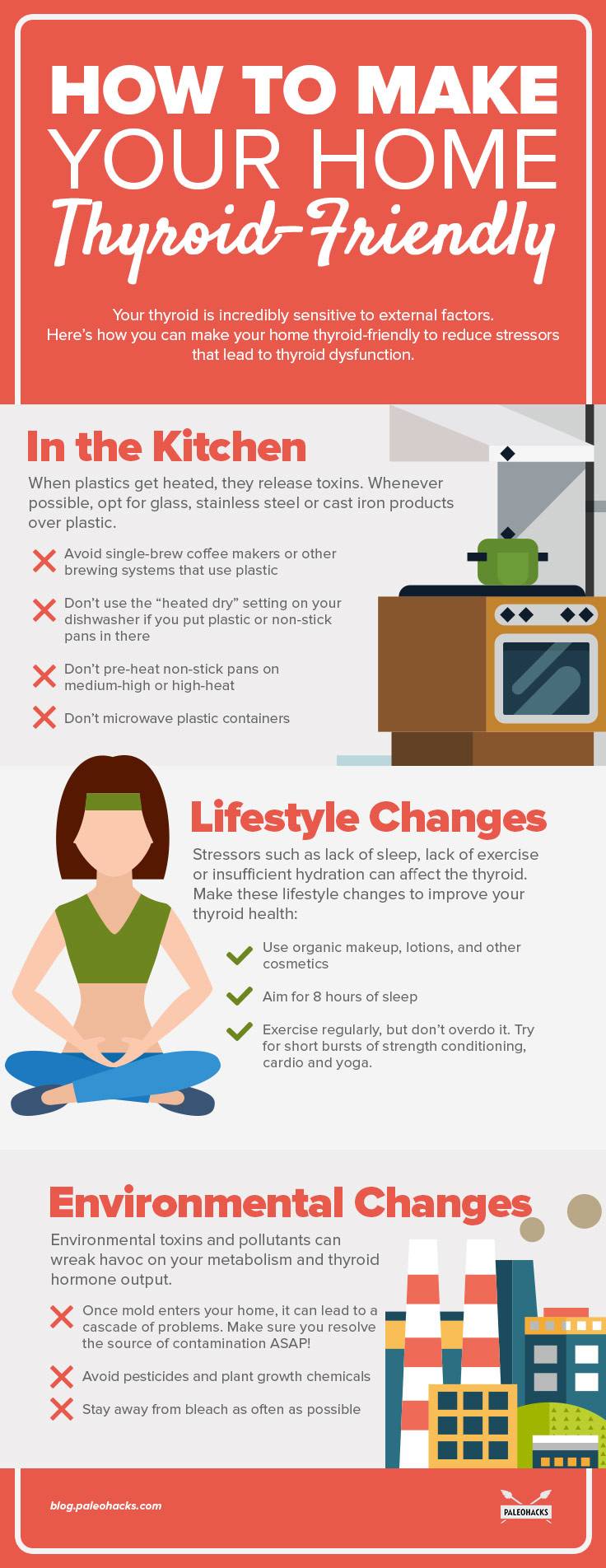
(Read This Next: 10 Powerful Tonics to Heal Your Thyroid


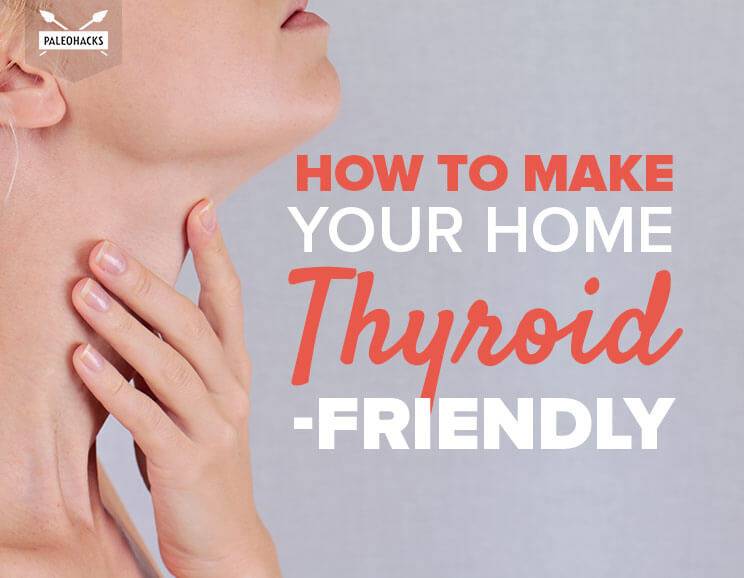
 I Treated My Hair According to the Lunar Cycle. Here’s What Happened.
I Treated My Hair According to the Lunar Cycle. Here’s What Happened.

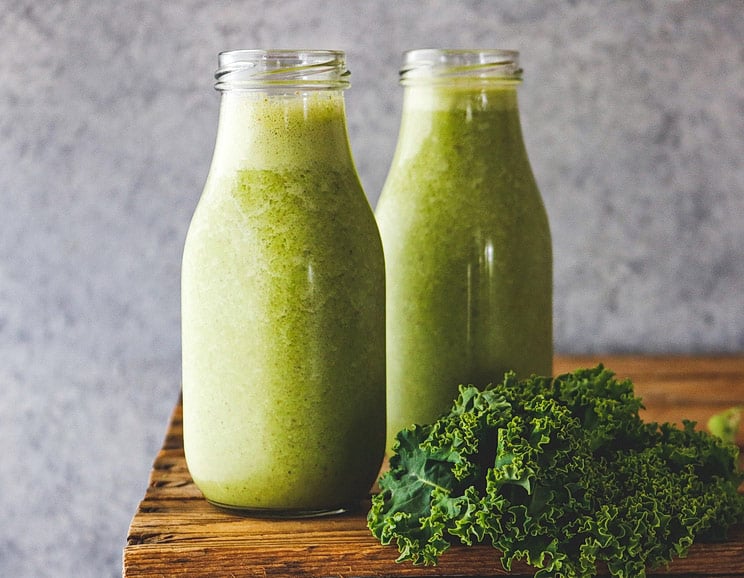
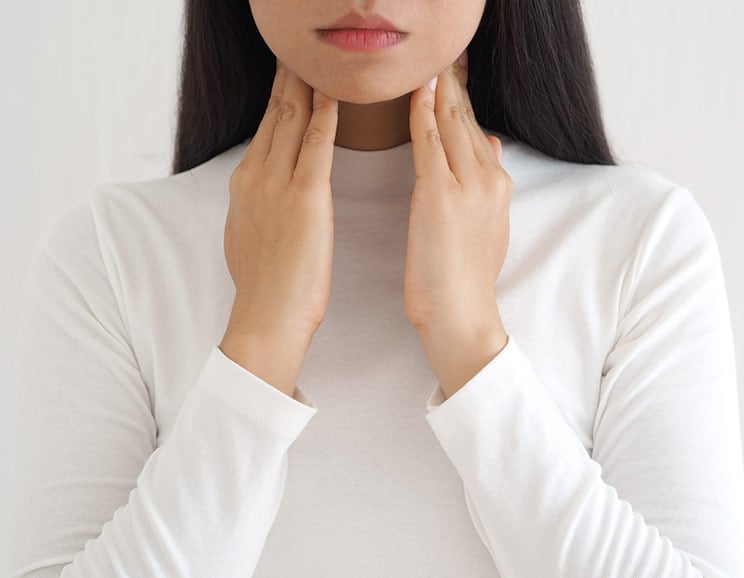
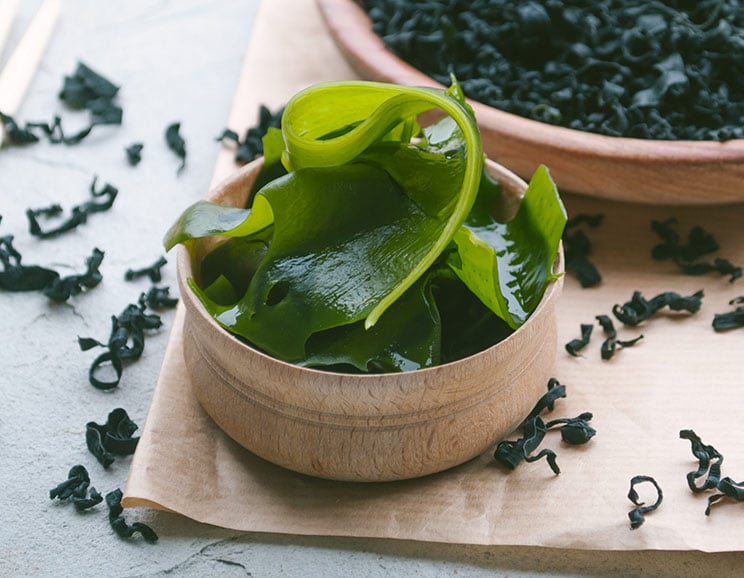





Show Comments